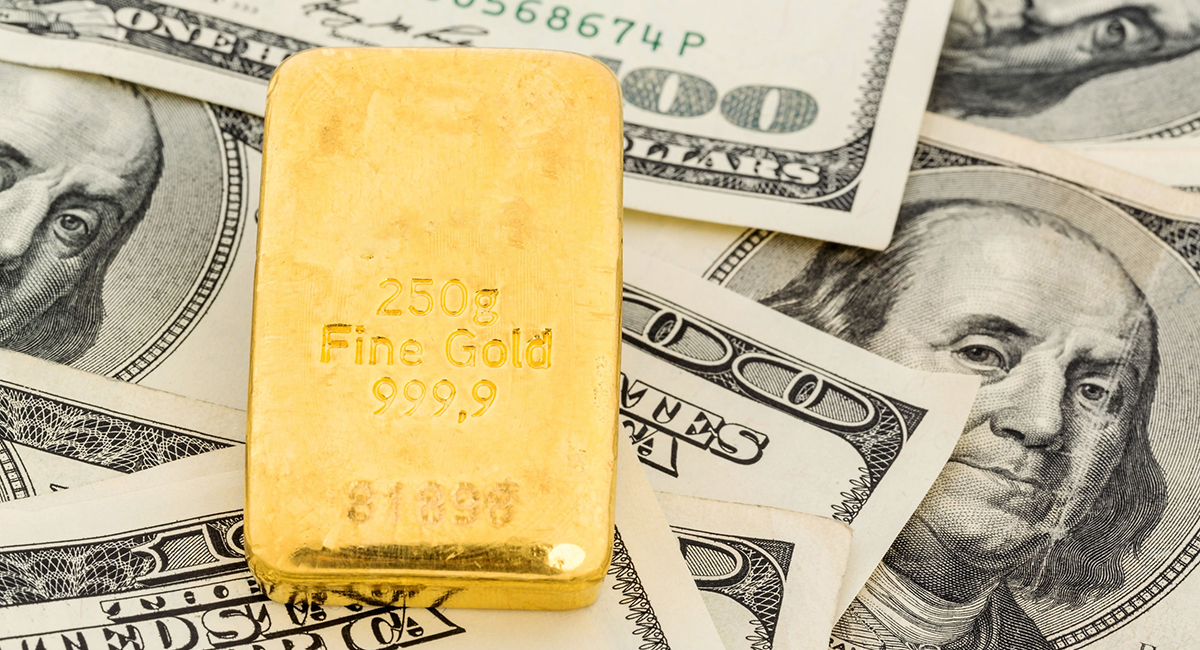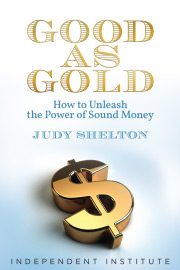Every year, the Senate Select Committee on Intelligence is briefed by the chief of U.S. intelligence on potential threats to the nation. The list is sobering, but usually predictable and typically includes global terrorism, nuclear proliferation and regional conflicts.
But this year, there was a surprising potential foe: the falling dollar. In his report to Congress last week, Director of National Intelligence Michael McConnell went beyond the conventional world of spycraft. Mr. McConnell specifically acknowledged “concerns about the financial capabilities of Russia, China, and OPEC countries and the potential use of their market access to exert financial leverage to achieve political ends.” He noted, in particular, the impact a weak dollar can have on national security: “As the dollar has weakened this year, some oil producers—such as Syria, Iran, and Libya—have asked to be paid in currencies other than the dollar while others—such as Kuwait—are delinking their currency pegs to the dollar.”
It’s not every day a former Navy vice admiral steeped in the culture of the defense intelligence community talks like a central banker, but Mr. McConnell clearly recognizes a threat: “Continued concerns about dollar depreciation could tempt other major producers to follow suit.”
The rest of Washington—and every presidential contender—needs to start paying attention to the declining dollar before it develops into a full-blown currency crisis with damaging geopolitical consequences. What happens if major oil-producing nations decide to abandon the dollar for measuring the value of their most important export? What if they set up their own monetary union to serve as an alternative to a currency that is no longer a reliable store of value?
At a time when the Pentagon is focusing on the importance of rebuilding war-torn nations—restoring civil and economic stability—as a prerequisite for lasting peace, we should be emphasizing the confidence-building aspects of sound money. The dollar’s primary role in the world financial system is the most vital nonmilitary instrument of our national power. We cannot afford to neglect the dollar and thereby give up the global influence that comes from providing the world’s key reserve currency.
It’s a matter of global energy security, first and foremost. Russia makes no secret of its ambitions to elevate the ruble to world reserve currency status. President Vladimir Putin, in a major televised speech last Friday outlining his strategic goals for the next 12 years, stated that Russia must become “one of the world’s financial centers”—a logical step, he asserted, given that Russia has accumulated $484 billion in gold and foreign currency reserves. Mr. Putin earlier called for denominating transactions for Russian oil and gas exports in rubles. When his chosen successor, Dmitry Medvedev, is inaugurated in May, we can expect a tightening of the link between Russian energy deliveries and currency requirements imposed on recipient countries.
A perfect storm for dollar desertion may already be brewing. In the months ahead, China is expected to export fewer consumer goods to the U.S. with a forcibly-appreciated yuan. Meanwhile, Chinese spending for Russian oil and gas will likely start to ramp up. Mr. Medvedev, whose duties include serving as chairman of Gazprom, observed this past summer that the U.S. dollar was not immune to crisis of a “comprehensive, global character.” He was thinking ahead about potential opportunities. “A situation may arise where we, China, and some other Asian countries will speak of the emergence of a regional reserve currency.” The yuan was a possibility, Mr. Medvedev conceded. “But it is in our interest that it be the ruble.”
If gold and foreign currency reserves were the only prerequisite for harboring global ambitions in the monetary arena, China could make impressive claims of its own with $1.7 trillion as of December 2007, the world’s highest level. Japan comes in second at $973 billion. If you add together the gold and foreign currency reserves of EU member states that have adopted the euro, including those of the European Central Bank, the total amount in the EU is $511 billion.
Russia trails not so far behind. And beyond its considerable official reserves (which increased by 57% last year alone) and its alarming energy clout in European and Asian markets, Russia has a growing military presence. Not that Russia’s military capabilities were ever truly contained. But those capabilities have been constrained as Russia struggled to emerge from its Communist past and join the family of democratic nations. Political transformation and economic renewal took precedence, so it seemed, over the large demands on funds that clinging to military superpower status would have required.
Building up a menacing force of strategic bombers, nuclear submarines and new intercontinental ballistic missiles is a financial luxury—one that Mr. Putin now seems eager to indulge as Russia fills its coffers. It may be that he sees it as the essential appendage to global power needed to carry out his strategic vision.
How else to explain the incursion of a Russian warplane on Saturday into Japanese air space, a violation that caused 22 Japanese fighter jets to scramble and elicited a strong protest to Moscow from the Japanese foreign ministry? The TU-95 “Bear” bomber is equipped to carry cruise missiles that can deliver a nuclear warhead.
Japanese newspapers speculate that the intrusion might have been prompted by an annual rally held two days before in Tokyo demanding the return of four islands seized by Russia in the closing days of World War II. Both Japan and Russia are strongly motivated to settle the long-standing dispute; Japan wants greater access to Russian energy supplies while Russia seeks Japanese financial capital to develop its far eastern regions.
Just last week—only three days before the Russian warplane sortie—Japanese Prime Minister Yasuo Fukuda announced he had received a letter from the Russian president offering to hold talks to resolve the dispute over the islands. Mr. Fukuda has made plans to visit Moscow in late April or early May, convinced that working out a settlement with Mr. Putin “is essential to lift Russo-Japanese ties to higher levels.” If he waits until May 9, Mr. Fukuda can take in Mr. Medvedev’s inaugural ceremonies as well as the planned full-scale, Soviet-style military parade—the first display of weapons on Red Square since 1990.
Not that the crude maneuvering of carrot-and-stick incentives isn’t effective, but it is dangerous. Especially when the dealmaker has shown a high propensity to rely on the stick.
A weakening U.S. currency plays directly into fears about a weakening U.S. economy and gives credence to self-serving pronouncements about America’s weakening role in the world arena. The dollar won’t be strengthened by further interest-rate cuts or more fiscal stimulation leading to inflationary consumer spending. If the U.S. is to reclaim its position as provider of the world’s most trusted currency, we must think more boldly.
It’s time to confront currency disorder. Our goal should be to put forward a new proposal for international monetary relations on the scale of the 1944 Bretton Woods agreement, invoking the same sentiments that inspired architects John Maynard Keynes and Harry Dexter White to provide a foundation of hope for a world all too prone to violence. A global system based on a universally-accepted monetary asset—the U.S. has the world’s highest level of official gold reserves, followed by Germany and France—would not only counter Russia’s offensive. It would convert a national security threat into a golden opportunity.









